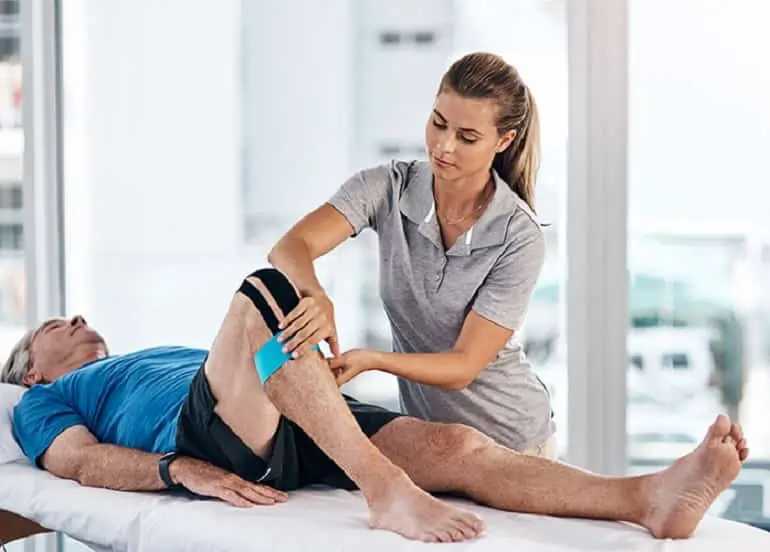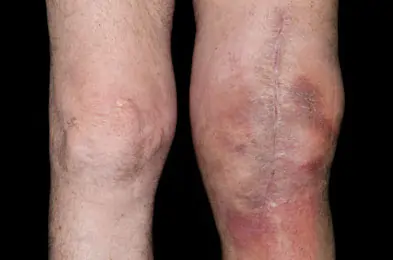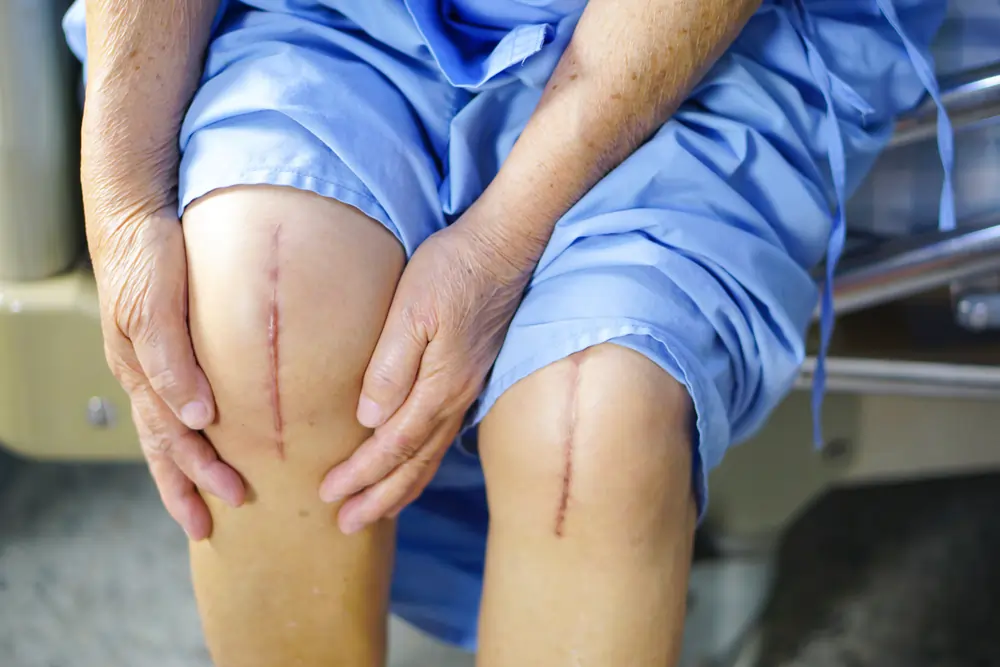Introduction
Knee replacement surgery is a life-changing procedure that promises to bring relief from chronic pain and improve mobility. However, the recovery journey is not without its challenges. Among these, the worst day after knee replacement surgery stands out as a significant hurdle. Understanding what to expect on this challenging day can make a big difference in how you handle it. In this article, we will delve into every aspect of the worst day after knee replacement, providing you with insights and strategies to navigate this difficult period.
What is Knee Replacement Surgery?
Knee arthroplasty, another name for knee replacement surgery, is the process of replacing a damaged knee joint with artificial parts. This procedure is typically recommended for individuals suffering from severe arthritis or knee injuries that have not responded to other treatments. The goal is to alleviate pain and restore function, allowing patients to lead more active lives.

Immediate Post-Surgery Experience
The first 24 hours after knee replacement surgery are crucial. You’ll likely still be under the effects of anesthesia and will be closely monitored by medical staff. Pain management begins immediately, with medications administered to keep discomfort at bay. This period is also when you’ll start to grasp the reality of your recovery journey.
Understanding the Worst Day After Knee Replacement
The worst day after knee replacement often occurs around the third or fourth day post-surgery. During this time, the initial effects of anesthesia wear off, and the body begins to react more intensely to the trauma of surgery. You may experience heightened pain, significant swelling, and a range of emotions from frustration to anxiety.
Factors Contributing to the Worst Day
Pain and Discomfort
Pain is a major component of the worst day after knee replacement. Despite medication, you might feel an increase in discomfort as your body adjusts.
Swelling and Stiffness
Swelling and stiffness are common and can be quite severe. The body’s natural inflammatory response to surgery peaks around this time, making movement difficult and painful.
Emotional and Psychological Factors
Emotionally, the worst day can be overwhelming. The combination of physical pain and the realization of a long recovery ahead can lead to feelings of depression and anxiety.
Pain Management Strategies
Medications and Their Role
Proper use of pain medications is essential. Always follow your doctor’s instructions to ensure effective pain control without risking addiction or side effects.
Non-Pharmacological Methods
Complementary methods like ice packs, elevation, and gentle exercises can also help manage pain. Techniques such as mindfulness and relaxation exercises can provide additional relief.
Importance of Following Medical Advice
Adhering to your medical team’s advice is crucial for optimal recovery. This entails following up on all scheduled follow-up appointments and taking prescription drugs as directed..
Coping with Swelling and Stiffness
Tips for Reducing Swelling
Elevating your leg and using ice packs can significantly reduce swelling. Compression stockings or wraps may also be recommended to control inflammation.
Exercises to Improve Flexibility

Gentle, prescribed exercises help improve flexibility and reduce stiffness. It’s important to start slow and gradually increase intensity as your recovery progresses.
Use of Compression Garments and Ice
Compression garments support the healing tissues and help manage swelling. Regular icing sessions, especially after exercises, can alleviate discomfort and control inflammation.
Emotional and Psychological Support
Recognizing Emotional Challenges
Acknowledge that feeling down is normal. The physical and emotional toll of surgery can be heavy, but it’s important to stay positive and patient.
Seeking Support from Family and Friends
Lean on your loved ones for support. Their encouragement and assistance with daily tasks can make a significant difference in your recovery experience.
Professional Help and Counseling
If emotional challenges become overwhelming, consider professional counseling. Talking to a therapist can provide strategies to cope with the emotional aspects of recovery.
The Importance of Physical Therapy
Role in Recovery
The foundation of knee replacement rehabilitation is physical therapy.. It helps improve strength, flexibility, and overall mobility.
Types of Exercises Recommended
Your physical therapist will design a program tailored to your needs, including exercises to enhance strength and range of motion.
Long-Term Benefits
Consistent physical therapy not only aids in immediate recovery but also ensures long-term success, helping you regain full functionality and avoid future issues.

Personal Stories: Worst Day After Knee Replacement
Hearing from others who have gone through knee replacement surgery can be incredibly reassuring. Many patients describe the worst day as a significant, yet surmountable, challenge. Their stories often highlight the importance of patience, perseverance, and the support of loved ones.
Diet and Nutrition for Recovery
Foods that Promote Healing
A balanced diet rich in proteins, vitamins, and minerals supports tissue repair and boosts your immune system. Include foods like lean meats, fruits, vegetables, and whole grains.
Importance of Hydration
Staying hydrated is crucial. Water aids in nutrient transport and helps manage swelling and inflammation.
Supplements and Their Benefits
Discuss with your doctor about supplements like vitamin D, calcium, and omega-3 fatty acids, which can support bone health and reduce inflammation.
Lifestyle Adjustments Post-Surgery
Modifying Activities to Aid Recovery
You’ll need to adapt your daily routines to accommodate your healing knee. Avoid high-impact activities and prioritize rest.
Importance of Rest and Sleep
Rest is a vital component of recovery. Quality sleep helps your body heal and manage pain more effectively.
Gradual Return to Daily Routines
Ease back into your normal activities slowly. Pay attention to your body and take your time..

Long-Term Recovery Outlook
What to Anticipate in the Months After Surgery
Recovery from knee replacement surgery is a marathon, not a sprint. Expect gradual improvements and set realistic milestones.
Setting Realistic Goals
Together with your medical team, establish realistic objectives for your recuperation.. Celebrate small victories along the way.
Monitoring Progress and Adjusting Plans
Regular follow-ups with your doctor and physical therapist will help track your progress and adjust your recovery plan as needed.
When to Contact Your Doctor
Signs of Complications
Watch for signs like increased pain, redness, swelling, or fever, which could indicate complications.
Routine Check-Ups
Attend all scheduled appointments to ensure your recovery is on track and to address any concerns promptly.
Keeping Open Communication with Healthcare Providers
Maintain open communication with your healthcare team. They are available to assist you and deal with any problems that may come up.
The worst days after knee replacement surgery typically encompass the first few days post-operation. Pain peaks as anesthesia fades, swelling intensifies, and initial movements become exceedingly painful. This period includes the immediate postoperative day when patients begin physical therapy, which, though essential, can be quite painful.
The body reacts to surgical trauma with inflammation and stiffness, adding to discomfort. Managing pain, dealing with limited mobility, and coping with disrupted sleep patterns due to discomfort make these early days particularly challenging. Despite these hurdles, early mobilization and adherence to rehabilitation protocols are vital for successful recovery.
What is the Worst Day After Total Knee Replacement?
The worst day after a total knee replacement is typically the first day post-surgery. This period is marked by intense pain as the anesthesia wears off, significant swelling around the knee, and the initial attempts to move the knee joint, which can be incredibly challenging. Patients often experience discomfort from surgical incisions and the presence of drains or catheters.
Additionally, the body begins to react to the trauma of surgery, leading to inflammation and stiffness. Despite these difficulties, early movement and physical therapy are crucial for recovery, making this initial period both physically and emotionally taxing for patients.
Conclusion
Recovering from knee replacement surgery can be challenging, with the worst day often being the most difficult part of the journey. However, with proper pain management, emotional support, physical therapy, and a healthy lifestyle, you can navigate this tough period successfully. Stay patient, follow your medical advice, and remember that every day is a step closer to a pain-free life.
Follow here for more information
FAQs
How long does the worst day after knee replacement last?
The worst day typically occurs around the third or fourth day post-surgery, but the intensity varies among individuals. It usually lasts for a day or two before gradually improving.
What are the signs that the worst day is approaching?
Increased pain, swelling, stiffness, and a general sense of discomfort are common signs. You might also feel more emotional or anxious as this day approaches.
Can physical therapy make the worst day better?
Yes, physical therapy can help alleviate some of the pain and stiffness. It’s important to follow your therapist’s advice and perform the recommended exercises.
Is it normal to feel depressed on the worst day?
Absolutely. The physical pain and realization of the recovery process can lead to feelings of depression. It’s critical to recognize these feelings and, if necessary, seek support.
What can family members do to help?
Family members can provide emotional support, assist with daily tasks, and encourage you to follow your recovery plan. Their presence and understanding can make a significant difference.

2 thoughts on “Worst Day After Knee Replacement: What to Expect and How to Cope”